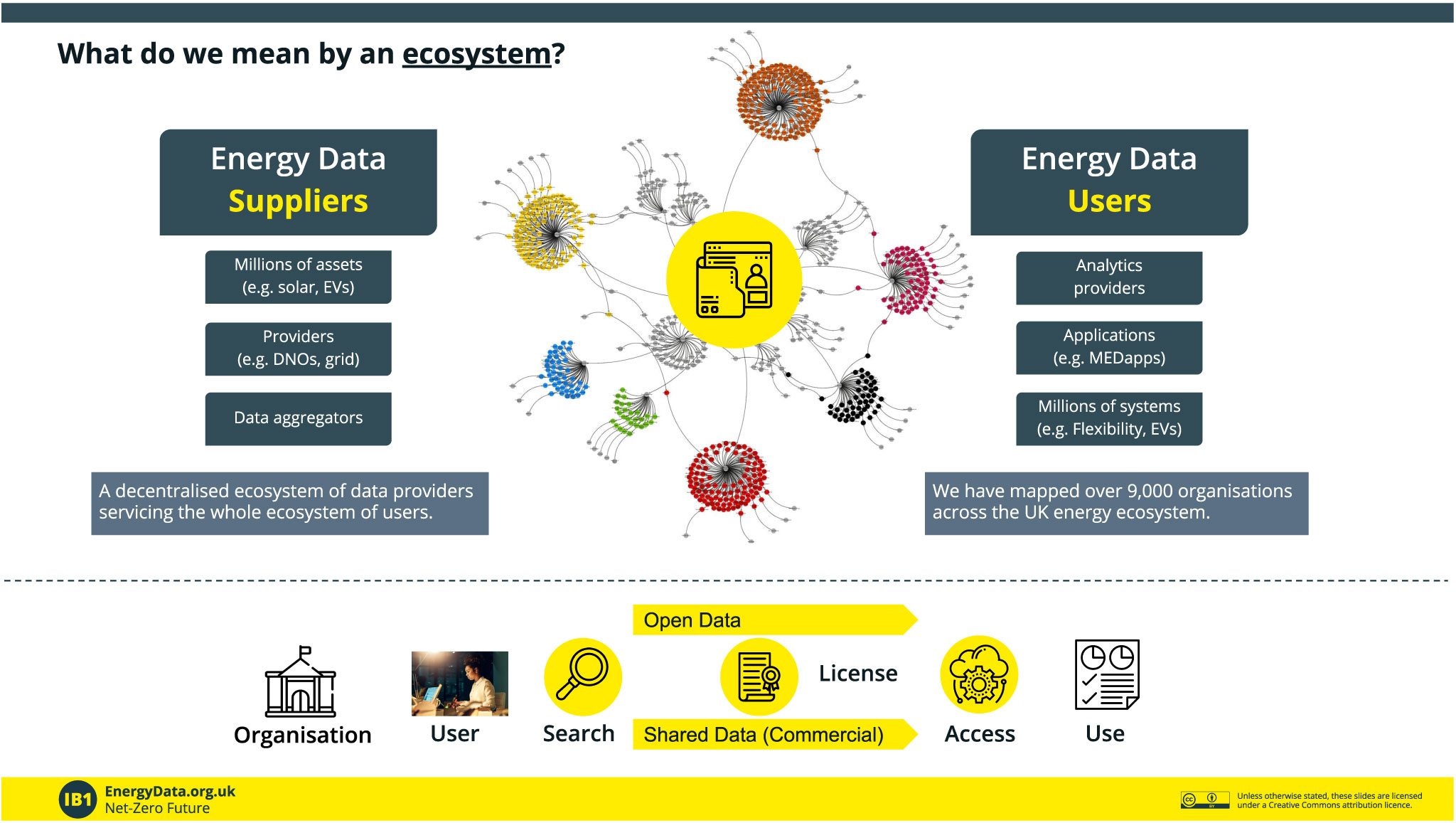Feel free to copy/paste these images if you wish to reuse them. They are CC-BY licensed.
Overview
Open Energy is a service that makes it easy to search, access and securely share energy data. It covers both Open Data and commercial Shared Data where access requires control. It has two service components: Search and Access Control, and a process whereby the needs of the market can be developed into Codes of Practice.
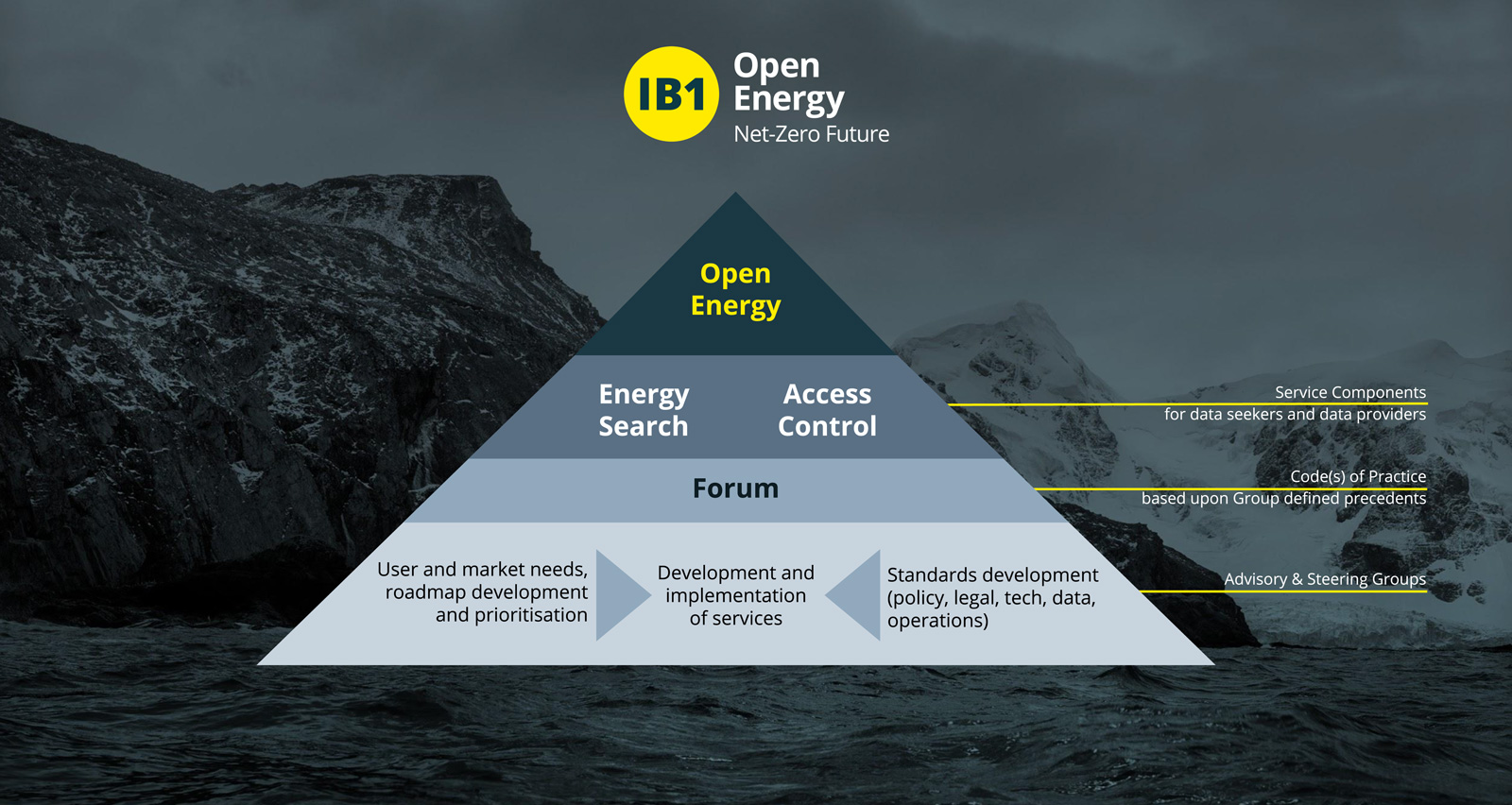
What does success look like?
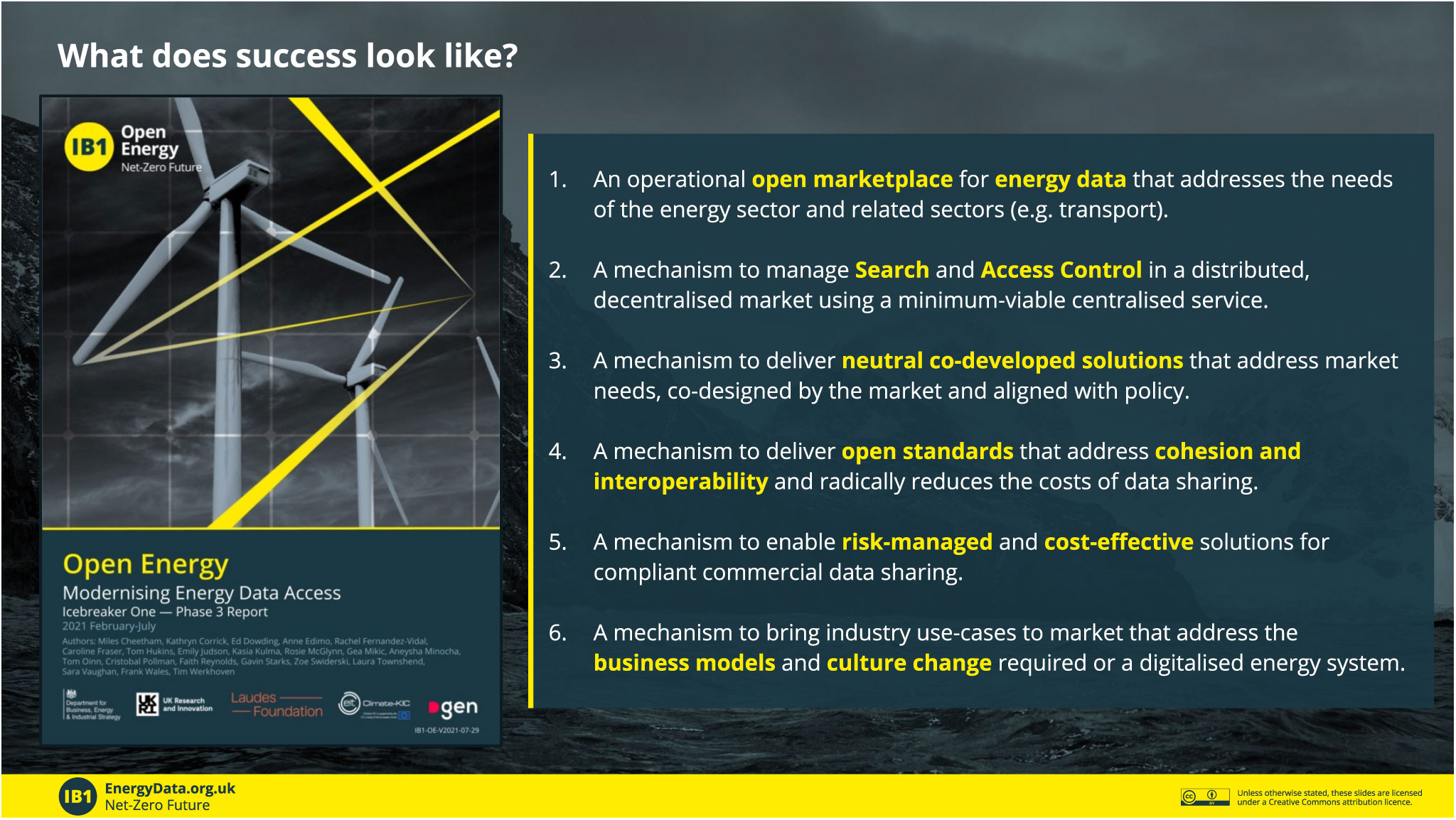
- An operational open marketplace for energy data that addresses the needs of the energy sector and related sectors (e.g. transport).
- A mechanism to manage Search and Access Control in a distributed, decentralised market using a minimum-viable centralised service.
- A mechanism to deliver neutral co-developed solutions that address market needs, co-designed by the market and aligned with policy.
- A mechanism to deliver open standards that address cohesion and interoperability and radically reduces the costs of data sharing.
- A mechanism to enable risk-managed and cost-effective solutions for compliant commercial data sharing.
- A mechanism to bring industry use-cases to market that address the business models and culture change required for a digitalised energy system.
REPORT: https://energy.icebreakerone.org/report-meda-3/
What is in-scope?
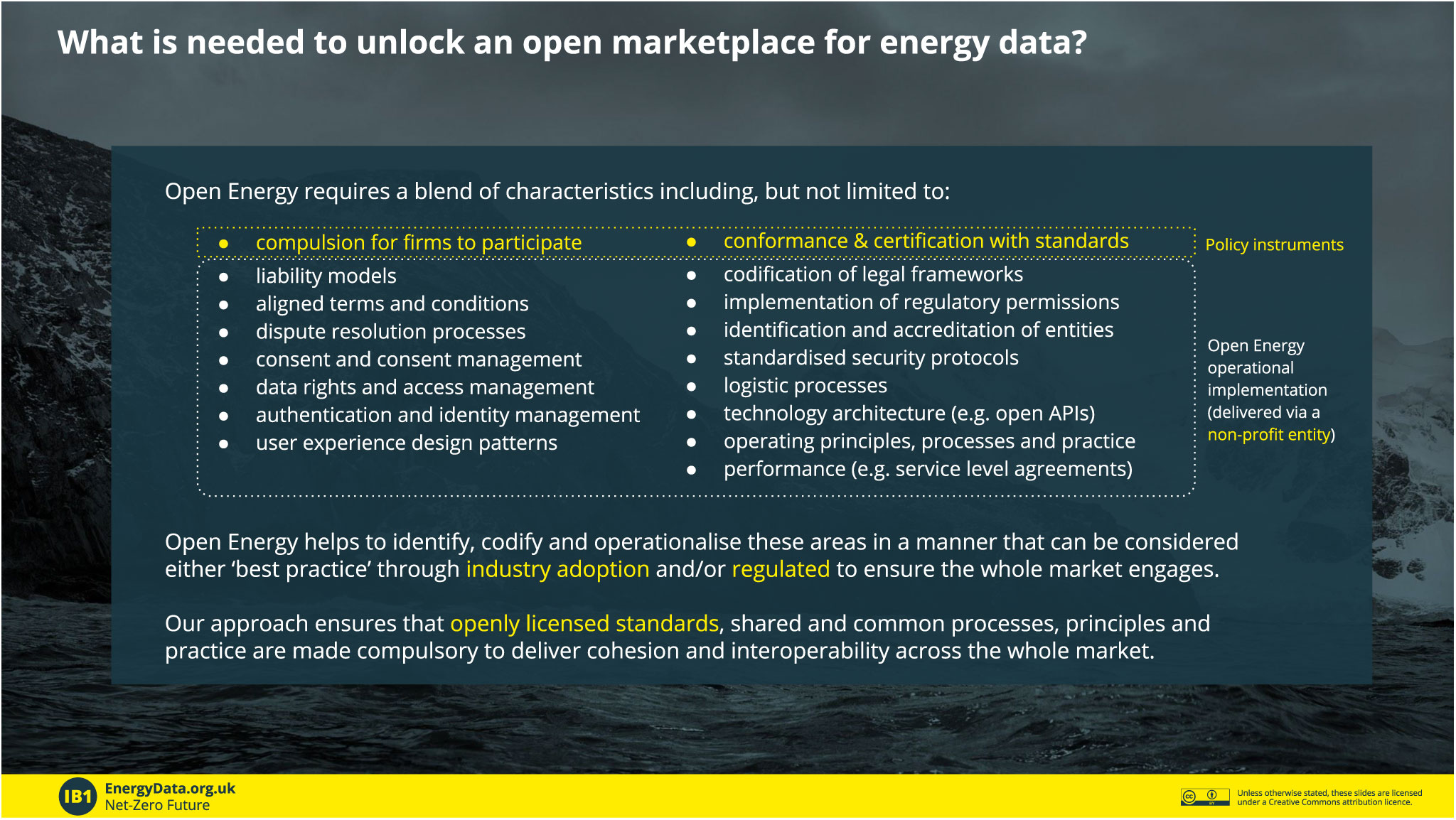
We include the following in our operational exploration and implementation:
- liability models
- aligned terms and conditions
- dispute resolution processes
- consent and consent management
- data rights and access management
- authentication and identity management
- user experience design patterns
- codification of legal frameworks
- implementation of regulatory permissions
- identification and accreditation of entities
- standardised security protocols
- logistic processes
- technology architecture (e.g. open APIs)
- operating principles, processes and practice
- performance (e.g. service level agreements)
Things that are in the remit of policy/regulation include:
- compulsion for firms to participate
- conformance & certification with standards
Open Energy helps to identify, codify and operationalise these areas in a manner that can be considered either ‘best practice’ through industry adoption and/or regulated to ensure the whole market engages. Our approach ensures that openly licensed standards, shared and common processes, principles and practice are made compulsory to deliver cohesion and interoperability across the whole market.
What is included and what is not?
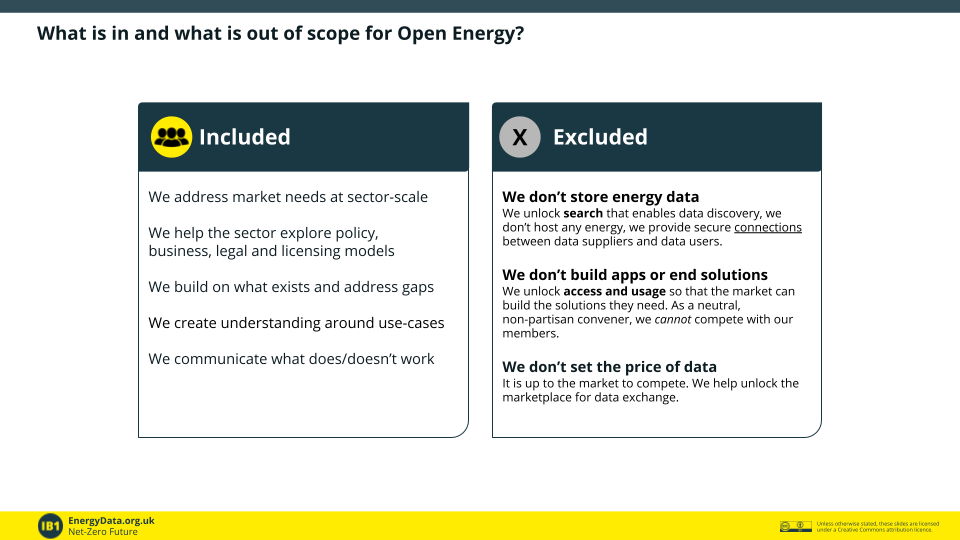
Included
- We address market needs at sector-scale
- We help the sector explore policy, business, legal and licensing models
- We build on what exists and address gaps
- We create understanding around use-cases
- We communicate what does/doesn’t work
Excluded
- We don’t store energy data: We unlock search that enables data discovery, we don’t host any energy, we provide secure connections between data suppliers and data users.
- We don’t build apps or end solutions: We unlock access and usage so that the market can build the solutions they need. As a neutral, non-partisan convener, we cannot compete with our members.
- We don’t set the price of data: It is up to the market to compete. We help unlock the marketplace for data exchange.
What does the UK ecosystem look like?
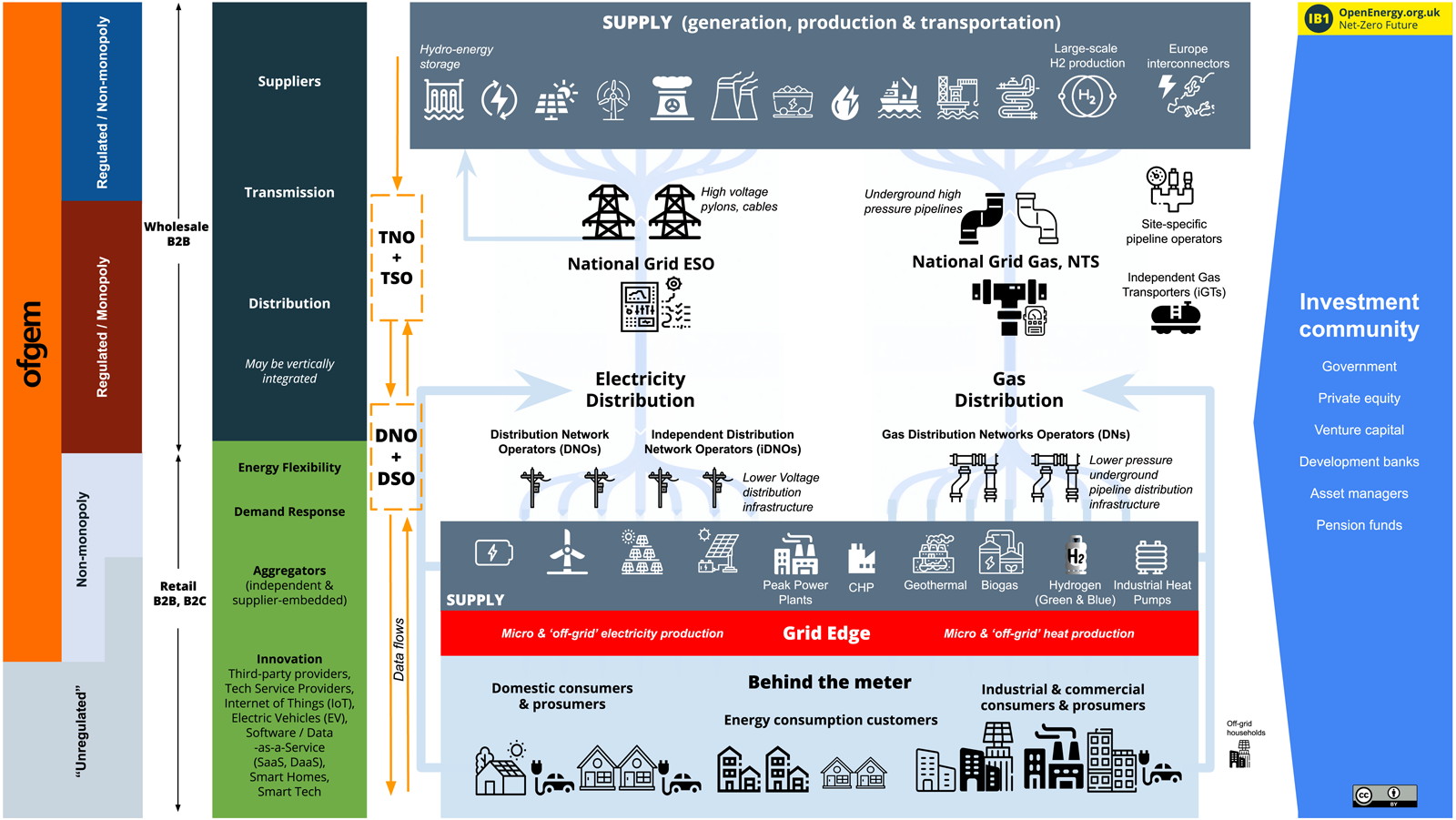
How is Open Energy linked to UK national and international priorities?
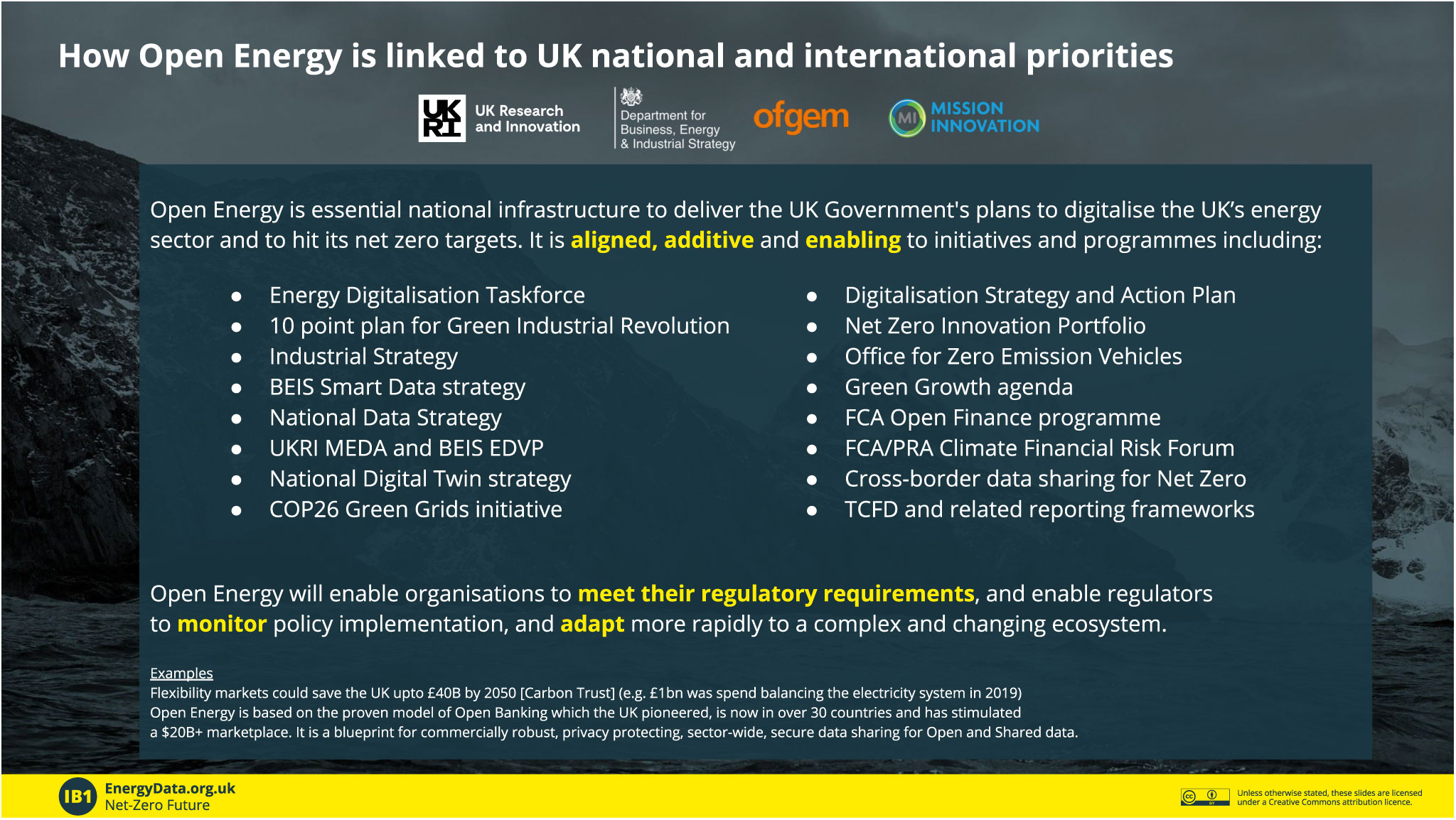
Open Energy is essential national infrastructure to deliver the UK Government’s plans to digitalise the UK’s energy sector and to hit its Net-zero targets. It is aligned, additive and enabling to initiatives and programmes including:
- Energy Digitalisation Taskforce
- 10 point plan for Green Industrial Revolution
- Industrial Strategy
- BEIS Smart Data strategy
- National Data Strategy
- UKRI MEDA and BEIS EDVP
- National Digital Twin strategy
- COP26 Green Grids initiative
- Digitalisation Strategy and Action Plan
- Net Zero Innovation Portfolio
- Office for Zero Emission Vehicles
- Green Growth agenda
- FCA Open Finance programme
- FCA/PRA Climate Financial Risk Forum
- Cross-border data sharing for Net Zero
- TCFD and related reporting frameworks
Open Energy will enable organisations to meet their regulatory requirements, and enable regulators
to monitor policy implementation, and adapt more rapidly to a complex and changing ecosystem.
What do we mean by an ‘ecosystem’?
